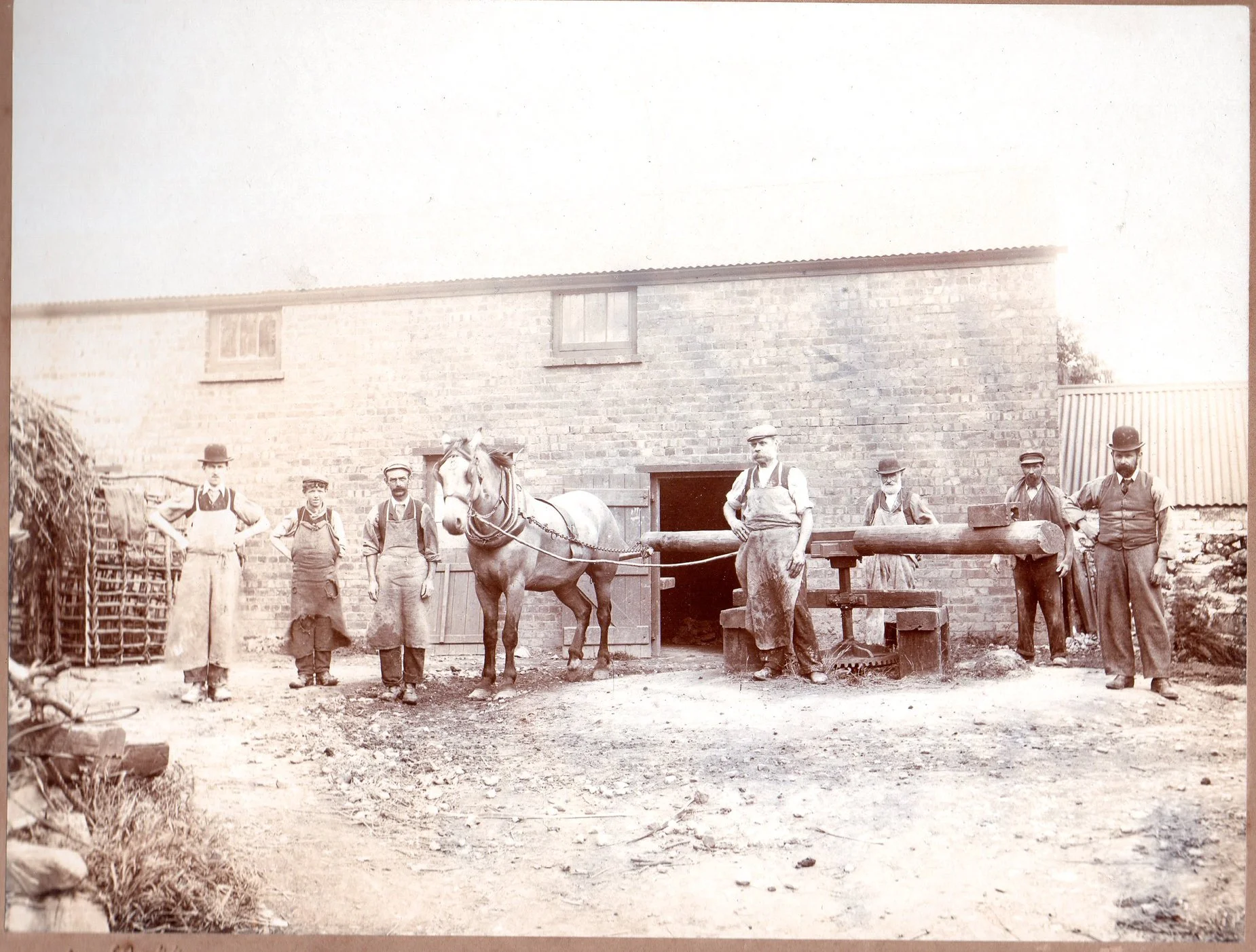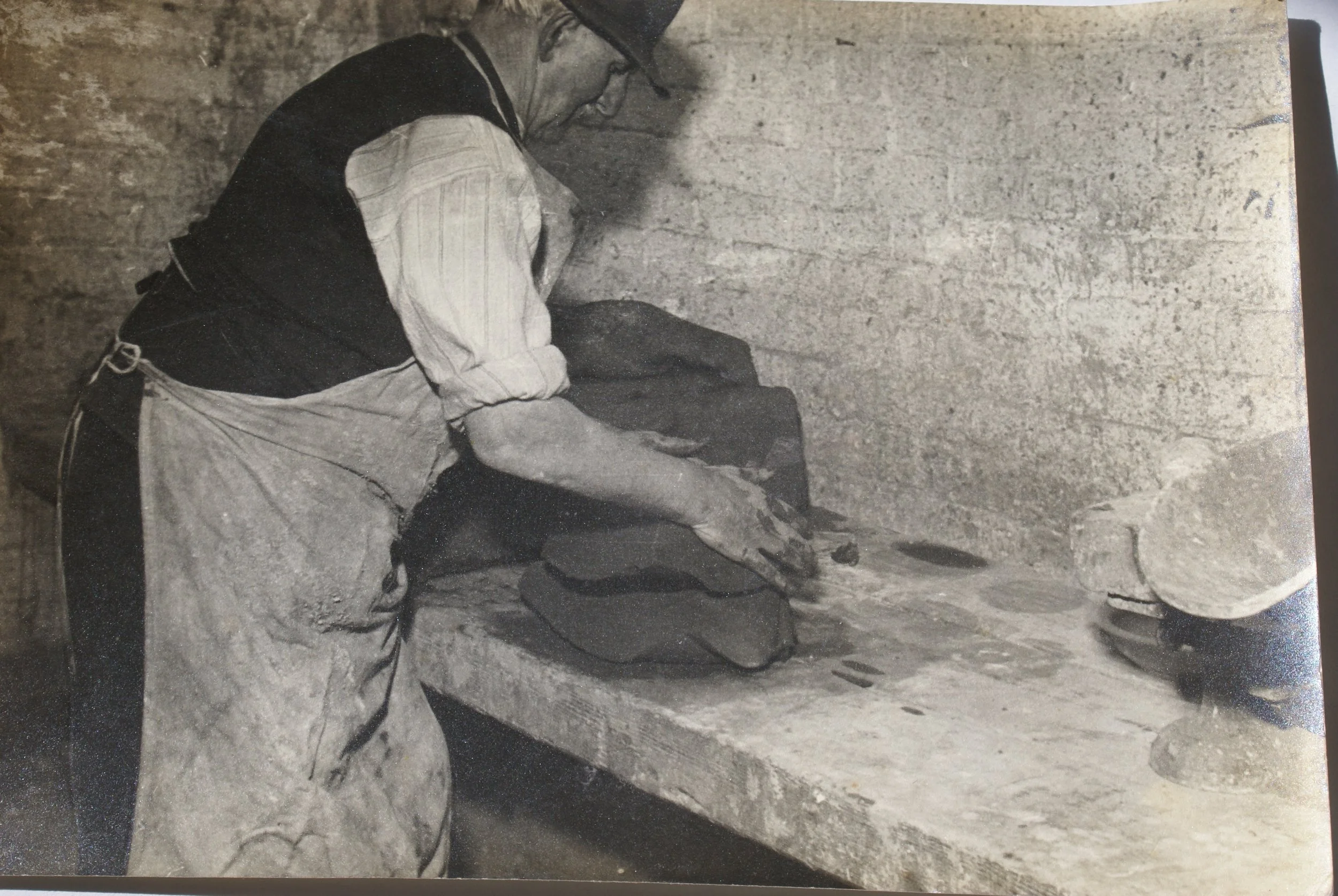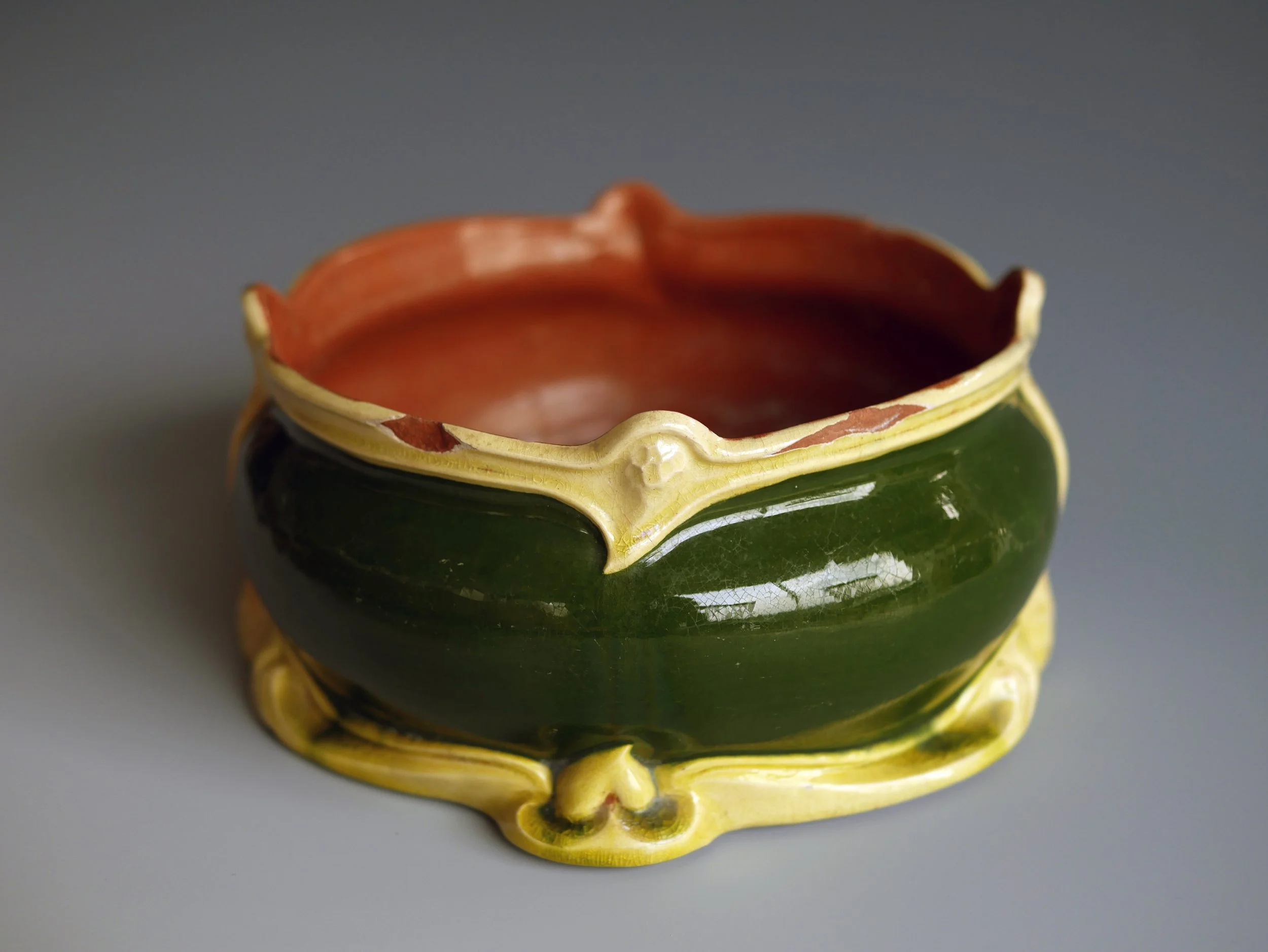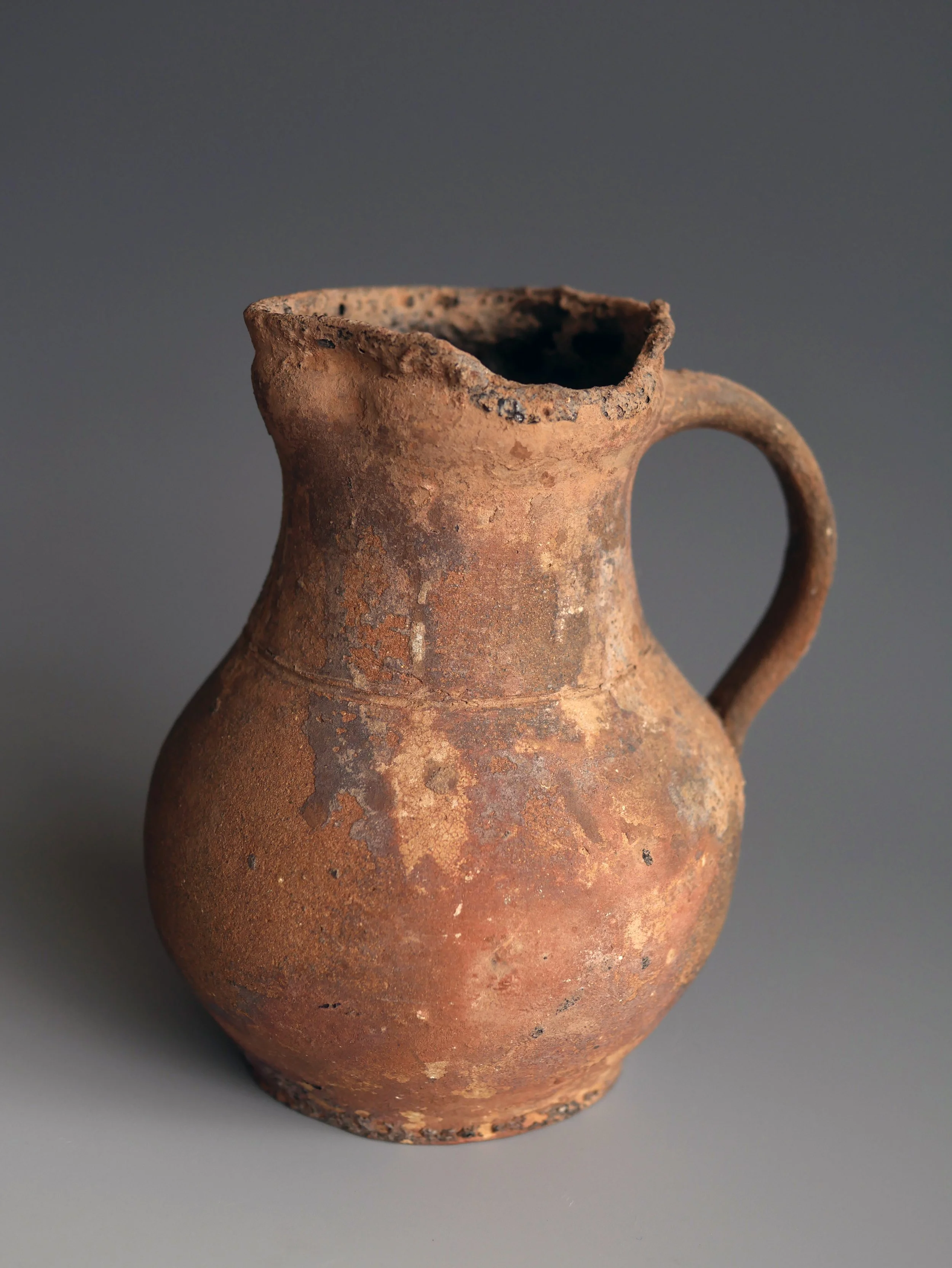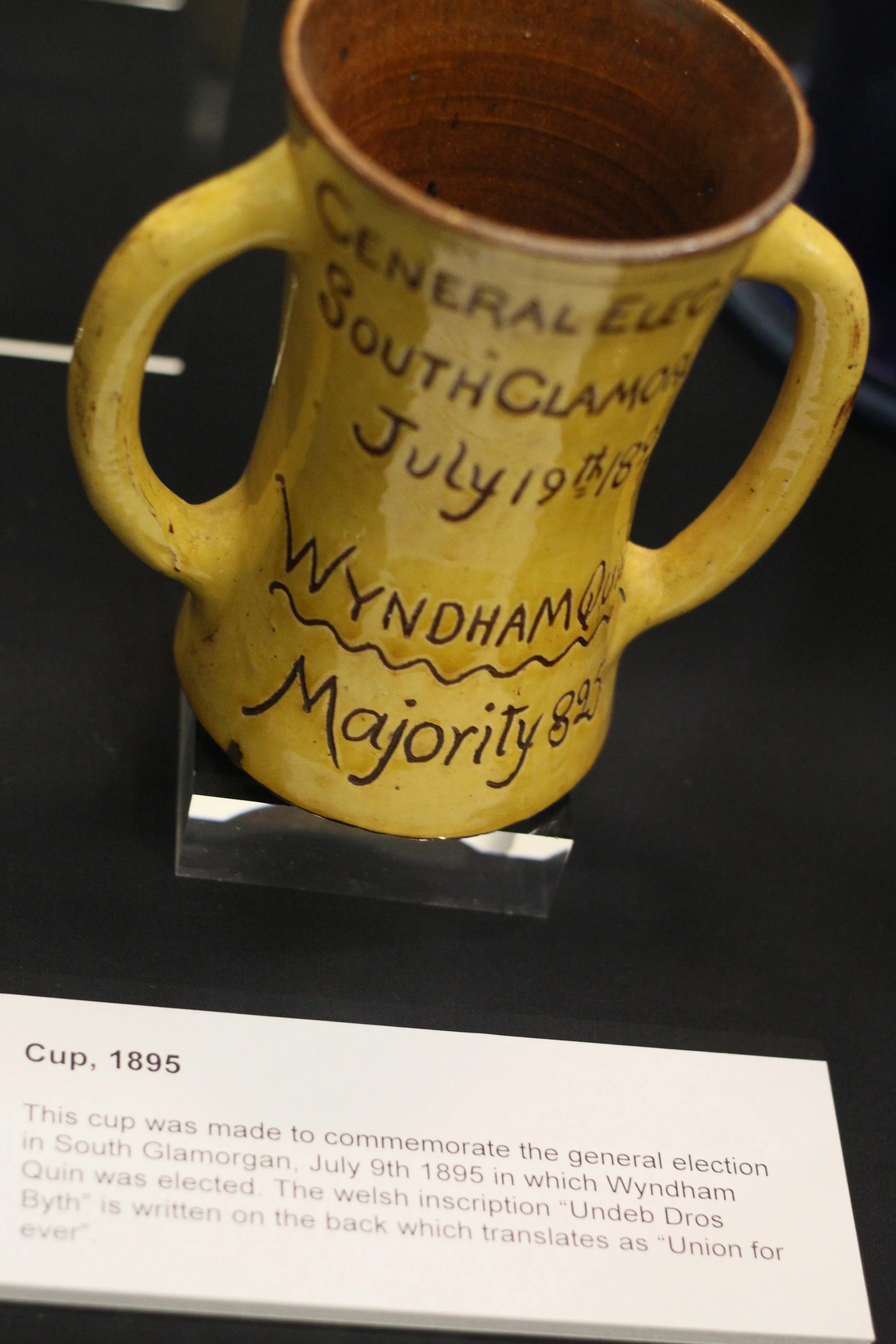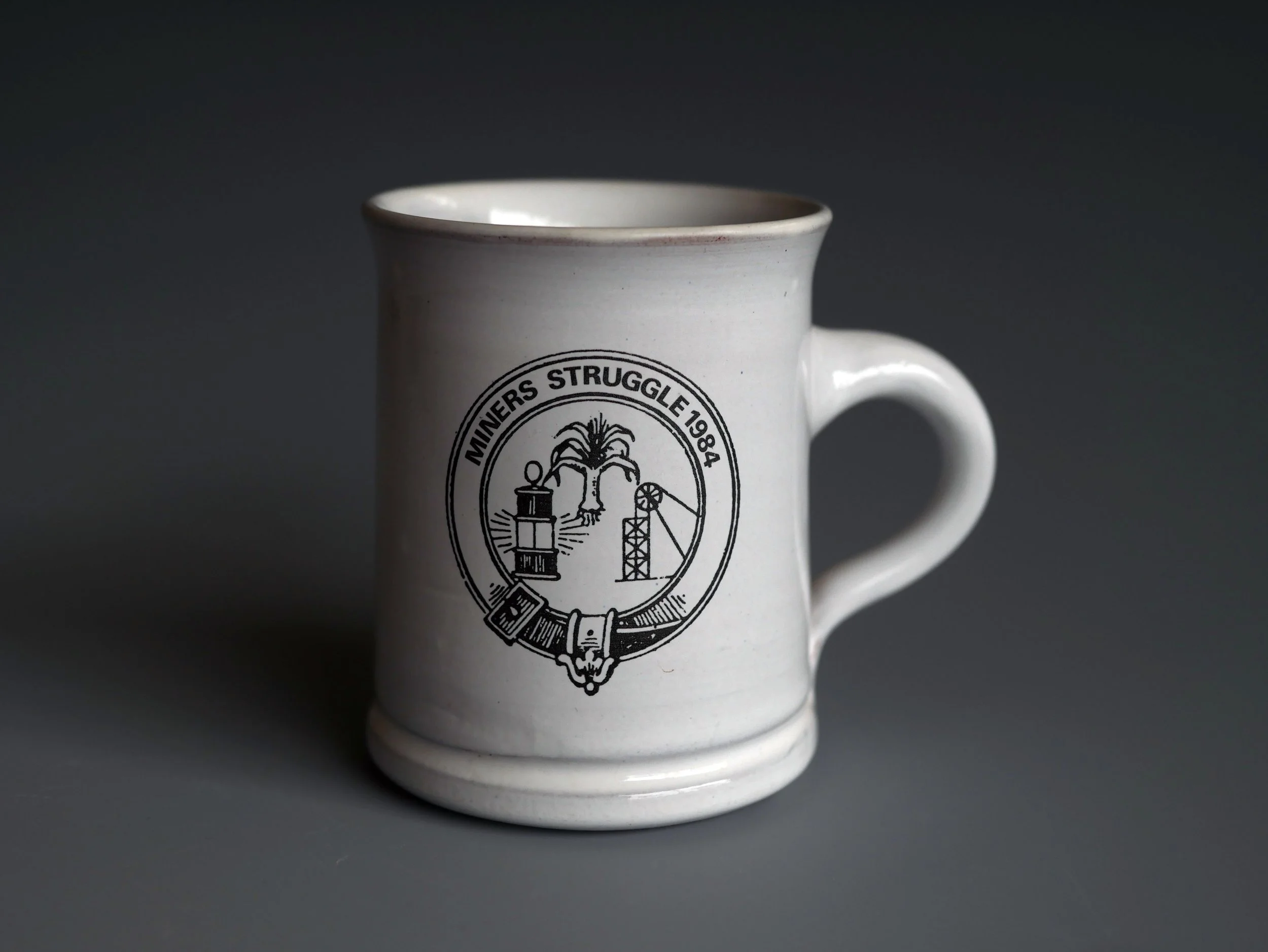A Potted History
There have been numerous small country potteries in and around the adjoining villages of Ewenny, Corntown and Hernston. This was due to deposits of boulder clay used to make the pots, local limestone and coal to build and fire the kilns, and glaze materials locally found to finish the pots. The earliest manorial record for our site being used for pot making is 1427.
________________________________________________________
The villages were sparsely populated and there is evidence that many of the potters married into each other's families, interloping between workshops. It would appear through genealogy research I am related to no less than six of the pottery families in the area; via the Jenkins's of Ewenny Pottery I am 8th generation however through the Arthur's of Corntown Pottery I am 9th generation.
________________________________________________________
When, at the start of the C19th, Evan Jenkins married Mary daughter of John Morgan of the Hernston Pottery the Jenkins Dynasty at Ewenny Pottery began, although C18th land estate maps show a large clay pit for the use of the Ewenny Pottery prior to this event. The beginning of the industrial revolution saw Ewenny and its adjoining villages become a hub of country potteries. The potteries made simply glazed pots for domestic, agricultural, horticultural and architectural use as well as sgraffito decorated commemorative commissions like loving cups, puzzle jugs and wassail bowls. Their wares were sold locally and in markets across Glamorgan. As the industrial revolution rolled on the potteries began to decline due to tin ware and cheap mass-produced china. The potters at Ewenny Pottery were committed to their craft and I believe this commitment coupled with their knowledge and skills enabled them to continue through this period.
________________________________________________________
In 1883 at the height of the Arts and Craft Movement, a gentleman from London, Horace Elliott, arrived at Ewenny Pottery and he continued to visit over a 30 year period staying a few weeks at a time. Horace Elliott was a designer and decorator and a supporter of the Arts and Crafts movement. He travelled around Europe visiting potteries but was particularly fond of working with the potters at Ewenny; he was responsible for bringing Ewenny Pottery wares to the wider public and in doing so it started winning prestigious awards. This is a quote from his memoirs:
________________________________________________________
“My craving for the simple joys of peasant life dragged me down there when ever my dear wife could carry on without me, all this time I was living as a peasant potter in the cottages either of one of the potters or small plot holders and became well known to all the countryside for many miles around so that I became practically Welsh as an English born man can make himself.”
________________________________________________________
During this time my great grandfather David John Jenkins would have been a small boy. He would have served an apprenticeship preparing clay and turning the big wheels at the pottery. David John Jenkins worked in various potteries in Ewenny at the beginning of the1900s. He worked with his father and uncles at Ewenny Pottery and in Claypits Pottery with his Uncle William. He married a lady called Martha Arthur who came from another long line of potters from the Corntown Pottery. He worked with his father-in-law there and in 1921 bought Ewenny Pottery from his cousin - Edwin II. He is within living memory and was a great mentor to Alun his grandson, my father, and his influence remains in how we run our pottery today.
________________________________________________________
David John Jenkins saw the potential in buying Ewenny Pottery, he had observed people could travel more easily and visitors to the area were increasing. It was here that he developed a technique to glaze his decorative wares. This technique is still used in the pottery today. We make our glazes dipping the pot in one and splashing on the other, in the kiln they melt together to create the distinctive mottled finish. David John had seven children whom all worked in the pottery including my grandfather Arthur Jenkins.
________________________________________________________
World War II meant my grandfather and his brothers went off to war leaving David John Jenkins alone to run the pottery. He continued to make flowerpots and small pieces only firing when given permission, as the kilns would have lit up the night sky like a beacon. As the war developed he was commissioned to make special jars for Bridgend Arsenal and one of his sons Dai was given leave of absents from the air force to help his father fire the kilns in the war effort.
________________________________________________________
After the War Arthur and Dai worked with their father but economic pressures meant eventually they could no longer afford to fire the big coal kilns and dig their own clay. Clay was sourced from Staffordshire and electric kilns superseeded coal (a difficult decision to take, however supporting two young families, survival was of the upmost importance).
________________________________________________________
As tourism increased a school trip or day out to the seaside would include a trip to have a look at the potters working at the pottery, passing the two big clay cats on the roof would mean you weren’t far from the sea. Today this is often discussed when visitors come back to our pottery happy we are still here. The pottery has been here so long it is part of peoples heritage as well as our own.
________________________________________________________
At this time Alun (Arthur's eldest son) was growing up. He spent a lot of time with his grandfather David John who taught him to throw and he worked in the pottery during school holidays with him. In 1961 David John Jenkins died and his two sons became partners. Alun decided to make a career in pottery - he graduated with a degree in Ceramics from Cardiff College of Art in 1969 and he went to work with his father and Uncle Dai. When Arthur and Dai retired it became untenable for Alun to continue to run the pottery in the old workshop. The future of the pottery after hundreds of years looked very bleak.
________________________________________________________
Alun and his wife Jayne wanted to continue the tradition of Ewenny Pottery so they started making pottery in the garage of their home at Ewenny. Luckily one of their first commissions was making mugs for the 1977 Queen’s Jubilee. This early commission set them on their way to build the pottery workshop as we know it today.
________________________________________________________
My sister and I were young children at this time and spent a lot of it playing with the clay and helping out, selling pots in the showroom, we even had a den under the long counter where I often had an afternoon sleep - anything to keep us quiet I'm sure. I enjoyed art and creating things, and wanting to be a potter when I grew up seemed natural, stubbornly nothing could change my mind. In my teenage years I practised the craft being taught by my patient father. I also studied Ceramics BA(Hons) at Cardiff and a few years later an MA in the Royal College of Art.
________________________________________________________
Working alongside my parents ever since, the pottery remains a family business. We remain true to our roots, making our living by selling our pots directly from our workshop. We continue to make thrown ware for the home, simple, useful and traditional in design. Each generation imparting their own style. Alun’s eye for form and love of glazes, my artistic flair and Jayne’s stringent critique is helping the tradition continue into the 21st Century.
________________________________________________________
Visitors come from all over the world which I find astonishing. Some watch us work and are intrigued about the process, always surprised to realise how much work is involved in making a piece of pottery. They are surprised that the simple tools we use for throwing are the same shapes as my ancestors used, we even use an old six inch nail to inscribe Ewenny Pottery on the bottom of the pot - if it works why change it.
________________________________________________________
Portraits of the potters peer down from the walls and I take comfort in knowing they would be proud that we continue the challenge of running a craft pottery. We have a small archive of pots from the past each with the imparted impressions of my forefathers fingers. At times when I handle these pots I almost feel as if my ancestors are holding hands with me as we strive to move the pottery forward.
________________________________________________________
Ewenny Pottery today operates, in many ways, the same as it did hundreds of years ago. Although modern machines and kilns help us, the process and skills remain passed down from one generation to the next. A pot is handled at least 23 times during the process of making it. From start to finish through the various stages of this pots life can take up to six weeks. This process helps make Ewenny Pottery unique - every piece thrown and decorated by hand ensuring no two are ever identical.
________________________________________________________
If you would like to know more about the history, pots and potters of Ewenny the book Ewenny Potteries, Potters and Pots by Ieuan and Gwyneth Evans is an informative book great for collectors and people who are interested in local Welsh history.



